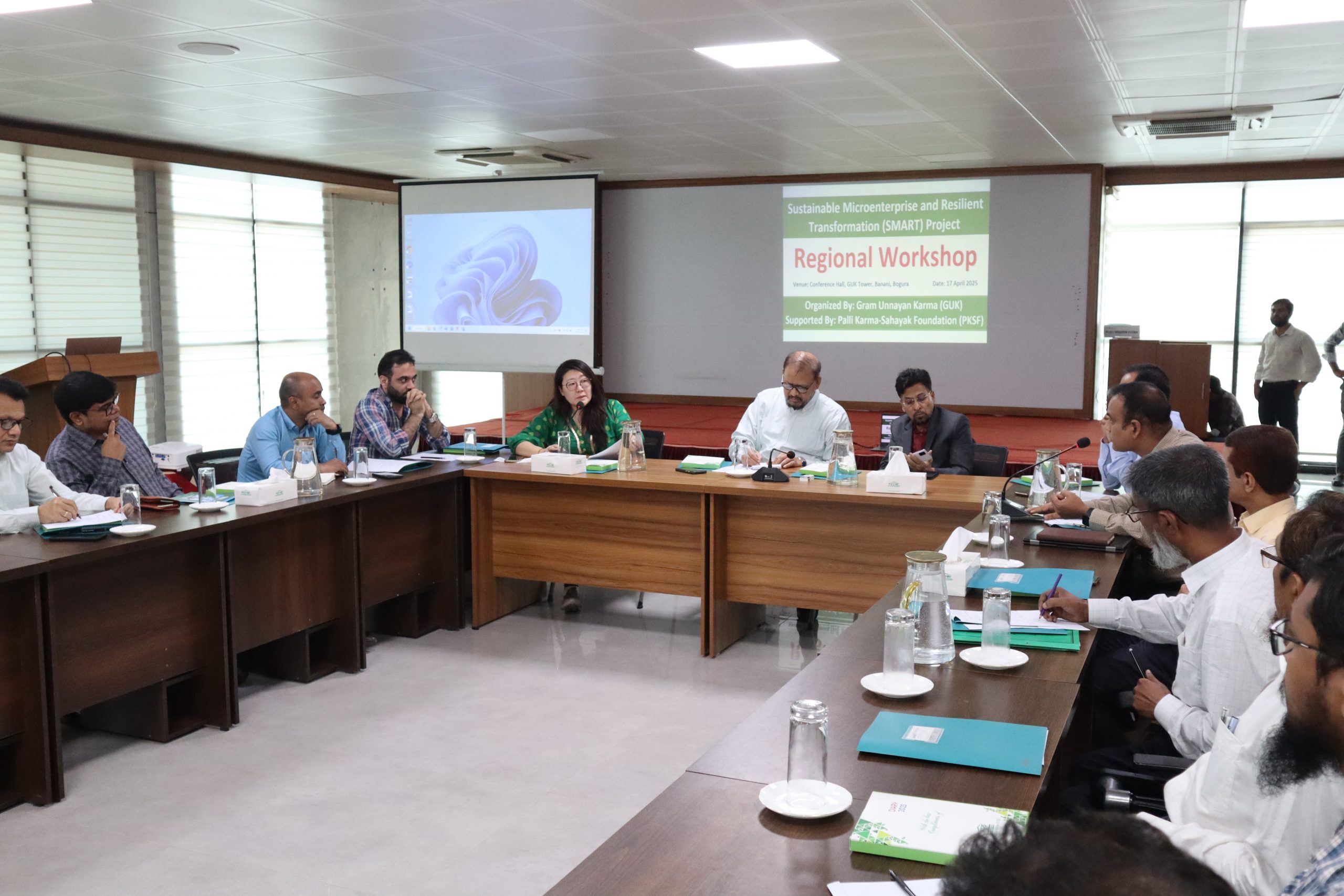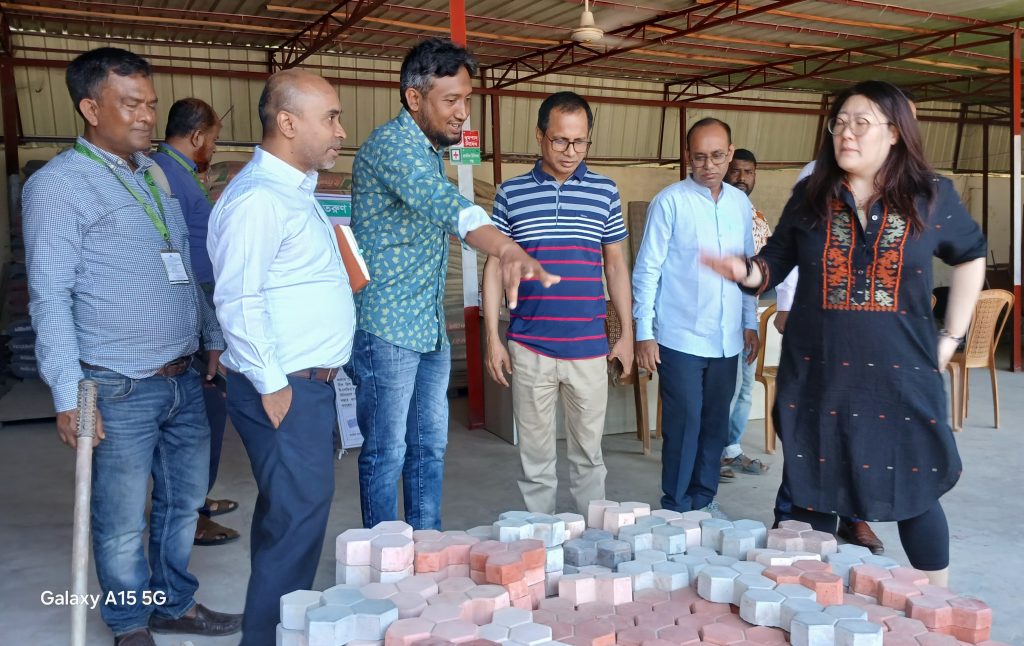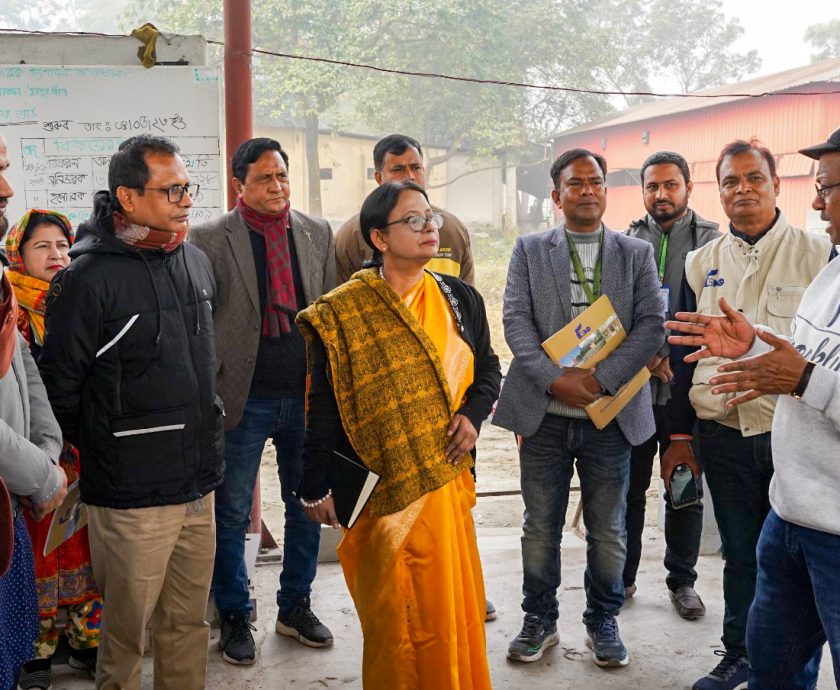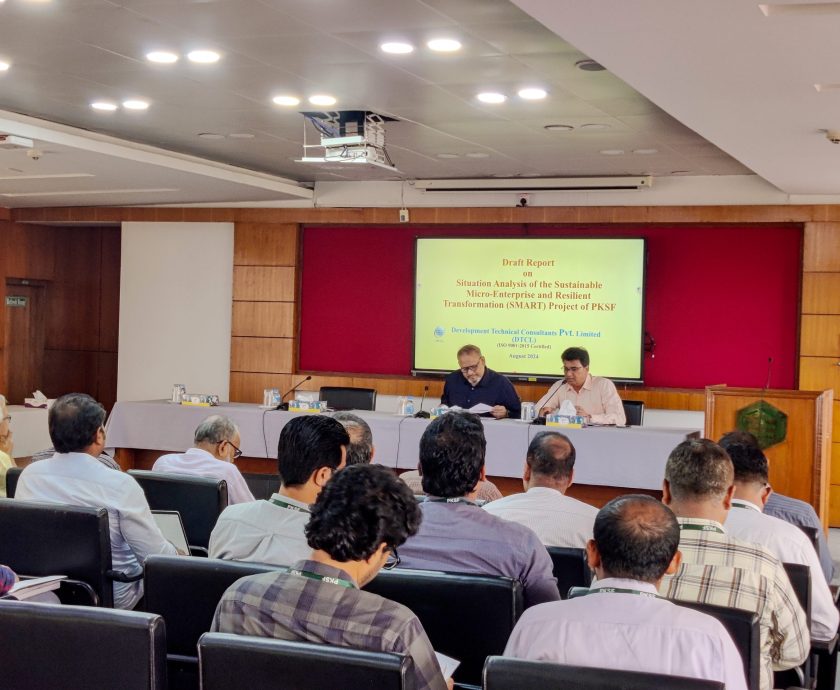The Financial Institutions Division (FID) and the World Bank commended the impressive progress of the Sustainable Microenterprise and Resilient Transformation (SMART) project during the concluding session of the World Bank’s Implementation Support Mission (ISM). The wrap-up session took place on 20 April 2025 at PKSF Bhaban-1, marking the end of the mission that began on 8 April.
Task Team Leader of the SMART project, Eun Joo Allison, express the World Bank’s satisfaction with the project’s progress at the wrap-up session of the meeting chaired by Md Ahsan Kabir, Additional Secretary of the FID. Md Ahsan Kabir also echoed his appreciation for the achievements made under the project. A similar note of encouragement was shared during an earlier session chaired by PKSF Managing Director Md Fazlul Kader.


Other key attendees included PKSF Deputy Managing Director Md Mashiar Rahman, SMART Project Coordinator Gokul Chandra Biswas, and officials from both FID and PKSF. The mission commenced with a kick-off meeting chaired by Md Mashiar Rahman, who emphasized the SMART PMU’s dedication to implementing low-cost, energy-efficient technologies, particularly in wastewater management in the loom sector.
Throughout the mission, the World Bank team conducted an in-depth review of component-wise progress and visited multiple field-level interventions. From 13 to 17 April, they observed plastic recycling activities in Chattogram (implemented through YPSA), eco-friendly construction and eco-tourism initiatives in Thakurgaon and Panchagarh (via ESDO), automobile workshop interventions in Bogura (through TMSS), and machinery and equipment-related enterprises in Bogura (implemented by GUK).
A stakeholder workshop was also held at GUK’s headquarters in Bogura, bringing together regional stakeholders, micro-entrepreneurs, and relevant government officials.
The SMART project, jointly implemented by PKSF and the World Bank, aims to improve the environmental sustainability of 80,000 microenterprises across the manufacturing, agriculture, and service sectors in Bangladesh. By promoting energy-efficient technologies and cleaner production methods, the project is enhancing productivity, generating employment, empowering women, and contributing to inclusive economic growth.






